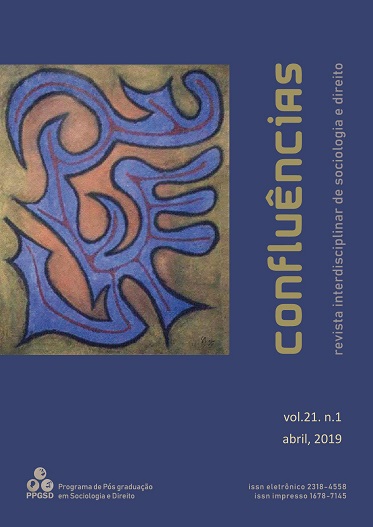LABOR REFORM AND ITS IMPLICATIONS IN TRADE UNION REPRESENTATION
DOI:
https://doi.org/10.22409/conflu21i1.p541Abstract
The new Brazilian legislation that came into force in November 2017, known as the "Labor Reform", brought a new scenario for labor relations, with repercussions on employment links and also on entities that orbit around these relations, such as unions. In relation to union associations, the effects were visibly striking once the protagonism attributed in the elaboration of autonomous norms came to live with the very survival of the union threatened by the change of the rules of costing. The present work consists of a brief historical and legislative analysis of trade unionism in the country, as well as its changes after the validity of Law n. 13.467 / 2017 and its effects on collective bargaining agreements. It is a qualitative research, based on bibliographic analysis.Downloads
Download data is not yet available.
Published
2019-07-03
How to Cite
PAIVA e BRUM, A. e A. (2019). LABOR REFORM AND ITS IMPLICATIONS IN TRADE UNION REPRESENTATION. Confluências | Interdisciplinary Review of Sociology and Law, 21(1), 31-45. https://doi.org/10.22409/conflu21i1.p541
Issue
Section
Artigos
License
The authors hold the copyright, with first publication rights granted to the journal, being the work simultaneously licensed under the Creative Commons Attribution Licence, which allows the work to be shared with acknowledgement of authorship and first publication in this journal.
The authors have authorization to separately purchase additional contracts of non-exclusive distribution of the work's version published in this journal (e.g.:publication in institutional repositories or as a book chapter), with acknowledgment of authorship and first publication in this journal.
The authors have permission and are encouraged to publish and disseminate their work online (e.g.:in institutional repositories or on their personal page), at any point - either before or during the editorial process, since it may generate productive changes, as well as increase the impact and citation of the published work.







